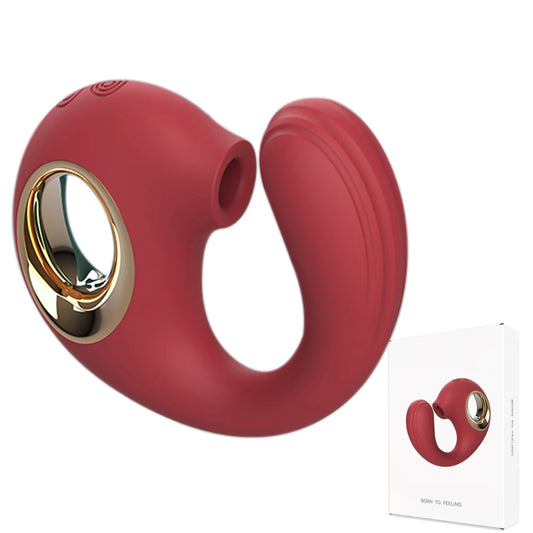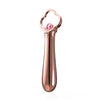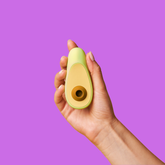How to Choose the Right Sex Lubricant for Your Needs

Choosing the right sex lubricant can seem tricky, but you should always feel safe and comfortable when you have sex. Many people think the right lube makes sex feel better and helps stop pain. You might not know which lube is best for you because there are so many choices. The world market for lube is now worth $1.7 billion, which shows that lots of people use lube for better sex and health. Here is how often people use lube with condoms during sex:
Context of Condom Use with Lubricants |
Percentage (%) |
|---|---|
Consistent use with all sexual partners |
38.9% |
Consistent use with male partners (penetrative anal sex) |
44.9% |
Consistent use with female partners (penetrative anal sex) |
40.0% |
You want to feel good, stop soreness, and stay safe during sex. Think about what you want from your lube. You might want it for toys, condoms, or just to feel more comfortable. The right sex lubricant helps you enjoy sex more and keeps things easy.
Key Takeaways
Pick a lubricant that works for you. You might need it for condoms, toys, or to feel comfortable during sex. Water-based lubes are soft and simple to wash off. Silicone-based lubes last longer. Oil-based lubes are thick but can harm latex condoms. Always look at the label for what is inside and if it is safe. This is very important if your skin is sensitive or you have allergies. Use the right lube with condoms and toys to stop damage and stay safe. Do not use oil-based lubes with latex condoms. Do not use silicone-based lubes with silicone toys. Try new lubricants on your skin first. Keep them in a safe place. Clean up well to keep your body and toys healthy.
What Is a Personal Lubricant?
A personal lubricant is a gel or liquid that you use to make sex feel smoother and more comfortable. You might see it called lube in shops or online. Lube helps you reduce friction during sex, which means less rubbing and less chance of soreness. You can find different types of lubricant, like water-based, silicone-based, and oil-based. Each one works in its own way to help you enjoy sex more.
Why Use Lube
You might wonder why you should use lube. Lube makes sex feel better by giving you extra lubrication. This helps you reduce friction, so you do not feel pain or discomfort. If you have dryness, lube can help you enjoy sex without worry. Many people use lube for vaginal, anal, or oral sex. Lube is also great for solo play with your hands or toys.
Research shows that using lubricant can boost pleasure and help you avoid small injuries during sex. Lube keeps your skin safe and helps you feel more relaxed. Some people need lube because of menopause, breastfeeding, or certain medicines. These things can cause dryness, so lube makes sex safer and more fun.
Tip: Always check the label of your lube. Some lubricants can harm condoms or toys, so pick one that matches your needs.
Common Uses
You can use lube in many ways. Here are some common uses:
Vaginal sex: Lube helps you avoid pain and makes movement smoother.
Anal sex: Lube is a must because the body does not make natural lubrication there.
Oral sex: Some lubes are safe to taste and make things more fun.
Sex toys: Lube helps toys glide and keeps your skin safe.
When to use lubricant: Try lube if you feel dryness or want extra comfort. You can also use it if you want to reduce friction and make sex last longer.
A personal lubricant is not just for people with dryness. Anyone can use lube to make sex more enjoyable. You can pick a lubricant that fits your body and your plans. Some people even choose lube with special features, like moisturising or healing effects, to support their intimate health.
Types of Personal Lubricant

When you shop for lube, you will see many kinds. Each type has its own good points and best ways to use it. Here is what you should know.
Water-Based
Water-based lubricants are easy to find in most shops. They feel smooth and light on your skin. You can use them with condoms and all sex toys. Cleaning up is simple because water washes them away. They will not leave marks on your sheets.
Most people like water-based lubricants. They are gentle and do not often cause skin problems. You can use them for vaginal, anal, or oral sex. Some people like them because they feel natural and are not sticky. If you need more, just add a bit or use water to make it slippery again.
Tip: If your skin is sensitive, read the label. Some water-based lubricants have glycerin or parabens. These can bother some people.
Silicone-Based
Silicone-based lubricants last longer than water-based ones. You do not need to put on more as often. They are good for long sessions or for use in water, like in the bath. Silicone-based lube feels silky and does not dry out fast.
Here is a table that shows how silicone-based lubricants do in tests:
Test Parameter |
Sample Composition |
Key Findings |
|---|---|---|
Coefficient of Friction (avg.) |
Load 460 gel grease + PV611 + RFM3000 (1:3) |
Lowest friction, so you get less rubbing and more comfort. |
Wear Spot Diameter (avg.) |
Load 460 gel grease + PV611 + RFM3000 (1:3) |
Smallest wear spot, which means better protection for your skin. |
Oxidation Resistance |
Presence of MoDTC in RFM3000 |
Stays stable even at high temperatures, so the lube does not break down easily. |
Viscosity Stability |
PV611 component |
Keeps the same texture, even if things heat up. |
Synergistic Effect |
PV611 and RFM3000 combined |
Gives you longer-lasting lubrication and better performance overall. |
You can use silicone-based lubricants with condoms. Do not use them with silicone toys, as they can harm the toy.
Oil-Based
Oil-based lubricants feel thick and rich. They are good for massage and give a slippery feel that lasts. You might like oil-based lube if you want something that does not dry out fast. Many people use oil-based lubricants for anal play or extra comfort.
Oil-based lubricants stay in place and give strong lubrication.
Additives like antioxidants help oil-based lube last longer and protect your skin.
Water makes oil-based lubricants work less well, so keep them away from water.
Synthetic and natural oils feel different, so pick what you like best.
A study found oil-based lubricants last a long time and protect well. You must store them right to keep them safe. Oil-based lube can break latex condoms, so only use them with polyurethane or nitrile condoms.
Note: Oil-based lubricants can stain your clothes and are harder to wash off than water-based or silicone-based lube.
Hybrid
Hybrid lubricants mix water-based and silicone-based parts. You get easy clean-up and a long-lasting feel. Hybrid lubricants are good for people who want both.
Studies show hybrid lubricants can improve lubrication by mixing different things. Some hybrids use special nanoparticles to spread better and keep heat. These hybrids can lower friction and wear, so they are a good choice for smooth, safe lubrication. Some use bio-based oils and new additives to help the planet.
You can use hybrid lubricants with most condoms and toys, but always check the label. If you want lube that lasts longer than water-based but is easier to clean than silicone-based, hybrid lube could be right for you.
Choosing the Right Sex Lubricant
Picking the right sex lubricant can really help you feel better during sex. You want to feel safe, happy, and enjoy yourself. Let’s see how you can pick the best lube for you. This is important if you have sensitive skin, use condoms or toys, or want to try anal or water play.
For Sensitive Skin
If your skin is sensitive, you need to be careful. Some lube ingredients can make your skin sore, especially in private areas. You should pick a safe lubricant that does not have parabens, glycerin, petroleum, or fragrance. Studies show parabens are in many care products. They can upset your hormones and might raise the risk of skin cancer or problems having babies. Because of this, many experts say to stay away from parabens in your lube.
Other things like glycerin can feed yeast and cause infections. This is more likely if you often get them. Petroleum and added smells can also make you itch, burn, or have allergies. Try a little bit of lube on your skin first. This helps you see if it causes any problems. If you feel sore, stop using that lube and talk to a doctor.
Here is a quick list for sensitive skin:
Pick a lube that says “hypoallergenic” or “for sensitive skin”.
Stay away from parabens, glycerin, petroleum, and fragrance.
Choose a pH-balanced lube, especially for vaginal use.
Test a small amount before using a new lube.
Tip: If you have had problems with other care products, you might have trouble with some lube too. Always check the label.
For Condoms and Toys
You want your lube to work well with condoms and toys. Not every lube is safe for every use. Water-based and silicone-based lubes are usually best for latex condoms. Oil-based lubes, like coconut oil or petroleum jelly, can break latex and make condoms not work. If you use non-latex condoms, like polyurethane or polyisoprene, you have more choices, but always check the box.
For sex toys, water-based lube is safest for all types. Silicone-based lube can harm silicone toys and make them sticky. If you use toys made from jelly or rubber, put a condom on the toy. This keeps you safe and makes cleaning up easier.
Here is a table to help you pick the right lube for condoms and toys:
Lubricant Type |
Latex Condoms |
Non-Latex Condoms |
Silicone Toys |
Other Toys |
|---|---|---|---|---|
Water-based |
✅ Safe |
✅ Safe |
✅ Safe |
✅ Safe |
Silicone-based |
✅ Safe |
✅ Safe |
❌ Not Safe |
✅ Safe |
Oil-based |
❌ Not Safe |
✅ Safe |
✅ Safe |
✅ Safe |
Note: Always read the instructions on your lube and toys. Some brands have special rules.
For Anal or Water Play
Anal sex and water play need extra care when picking a lube. The right lube can help you stop rubbing, lower the chance of getting hurt, and make things feel better. For anal sex, you need a lube that lasts long and does not dry out fast. Silicone-based lube is a good choice because it stays slippery and does not soak into your skin. Water-based lube is also good, but you might need to use more.
If you want to use lube in the bath or shower, silicone-based lube is best. It does not wash away in water. Oil-based lubes are not safe with latex condoms and can make infection more likely, so do not use them unless you are not using condoms.
Some water-based lubes have high osmolality. This means they can pull water from your cells and hurt your skin. Studies show that using a safe lube with low osmolality (below 1200 mOsm/kg) and a pH close to your body’s level helps keep your skin healthy. Lubes with numbing agents might sound helpful, but they can hide pain and cause injury, so it is best not to use them.
Here is a table to compare different lubes for anal or water play:
Lubricant Type |
Tissue Safety |
Performance Notes |
|---|---|---|
Water-based |
Best if low osmolality |
May dry out, needs reapplying, not for water play |
Silicone-based |
Good, not absorbed by skin |
Long-lasting, great for water play |
Oil-based |
Can damage condoms, risky |
Not for latex condoms, may increase infection |
Agar-based |
Gentle, matches body fluids |
Safer for tissue, less common |
Callout: Never use baby oil, petroleum jelly, or lotion as lube. These can make you sore, cause infection, or break condoms.
If you ever wonder when not to use lube, skip it if you see signs of infection, open cuts, or if you have had a bad reaction before. Always listen to your body and pick the right lube for you.
Lube Safety and How to Use Lubricant

How to Use Lubricant Safely
You want to know how to use lubricant safely, and it starts with checking what is inside the bottle. Always read the label for a list of ingredients. Some people react to certain lubricant ingredients, so look for anything you know you are allergic to. Many companies use tests like gas chromatography-mass spectrometry to check for allergens and harmful substances. This helps keep you safe.
Before you try a new lube, put a small amount on your inner arm. Wait a few hours to see if you get a rash or itch. If you do, pick a different product. When you use lube, warm it in your hands first. This feels nicer on your skin. Use enough so things feel smooth, but not so much that it gets messy. If you use condoms, avoid oil-based lubes. They can make condoms break. If you use silicone toys, do not use silicone-based lube. Water-based lubes work with most toys and are easy to clean.
Here is a quick table to help you remember:
Step |
What to Do |
|---|---|
Check ingredients |
Look for allergens or things you react to |
Patch test |
Try a little on your skin before full use |
Warm before use |
Rub lube in your hands for comfort |
Use enough |
Apply a good amount for smooth movement |
Match to use |
Pick the right lube for condoms or toys |
Tip: If you ever feel burning or itching, wash off the lube and stop using it.
Storage and Clean-Up
Knowing how to use lubricant also means knowing how to store it and clean up after. Keep your lube in a cool, dry place away from sunlight. Always close the cap tightly. This stops germs and dirt from getting in. Label your bottle if you have more than one type, so you do not mix them up.
After you finish, wash your hands and any toys you used. Water-based lubes come off with soap and water. Silicone and oil-based lubes may need a gentle cleanser. Clean up right away to stop bacteria from growing. If you spill lube, wipe it up quickly to avoid slipping.
Here are some easy steps for clean-up and storage:
Store lube in a cool, dark spot.
Keep bottles closed and upright.
Wash toys and skin after use.
Use gentle soap for tough lubes.
Check expiry dates before each use.
Callout: Good storage and cleaning habits keep you safe and help your lube last longer.
If you follow these tips, you will know how to use lubricant safely every time. You will also keep your skin and toys in top shape.
Picking the right lubricant helps you feel better and enjoy sex more. You know what feels good for your body, so try a few types. Pay attention to how your body feels each time you use lube. If you keep feeling sore or uncomfortable, talk to a doctor or nurse. The right lubricant helps you stay safe, happy, and have a good time.
FAQ
Can I use any lube with condoms?
No, you cannot use every lube with condoms. Water-based and silicone-based lubes work well with latex condoms. Oil-based lubes can break latex condoms. Always check the label before you use a new lube.
How do I know if I am allergic to a lubricant?
You can do a patch test. Put a small amount of lube on your inner arm. Wait a few hours. If you see redness or feel itching, do not use that lube on your private parts.
Does lube expire?
Yes, lube does expire. You can find the expiry date on the bottle. Using old lube can cause irritation or infection. Always check the date before you use it.
Can I use lube for oral sex?
Yes, you can use lube for oral sex. Pick a lube that says “safe for oral use” on the label. Flavoured lubes are made for this, but some people may not like the taste.
What should I do if lube causes burning or discomfort?
Stop using the lube right away. Wash the area with warm water and gentle soap. If the burning does not stop, talk to a doctor or nurse. Always listen to your body.








